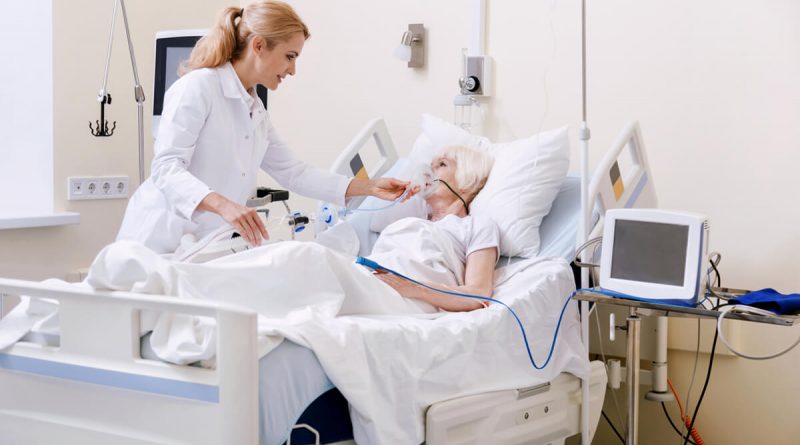Everything You Need to Know to Become an Adult Gerontology Primary Care Nurse Practitioner in 2022
With an aging and growing population, the increased need for highly trained nurse practitioners that specialize in adult gerontology primary care is expanding. You will be helping a large population manage common health conditions like diabetes, respiratory illnesses, hypertension, and so much more. No day will look the same, and your work will help those in every community.
If you are passionate about helping others lead better lives in their golden years, and are interested in the many medical treatments, advancements, and science that goes into improving health and wellbeing in adult gerontology patients, then becoming an Adult Gerontology Primary Care Nurse Practitioner (AGPCNP) can be the perfect move for your career.
What Does an Adult Gerontology Primary Care Nurse Practitioner Do?
An Adult Gerontology Primary Care Nurse Practitioner does many key tasks that all work to improve and maintain the health and wellbeing of all adults. They work to assess and diagnose conditions, and they also work to create a working plan that addresses the health needs of all adults. They work with all adults, from young adults all the way to seniors, and in many cases work autonomously.
A few of the tasks handled by an AGPCNP include collecting medical histories, ordering tests, conducting physical examinations, interpreting tests, and also administrating appropriate treatment. Depending on the state, they may be able to recommend or prescribe pharmacological and nonpharmacological treatments.
AGPCNPs take a patient-first approach to their work, and will always consider multiple factors that will impact how they interact with and treat their patients. This means they consider the social and economic background of their patients as well as the environmental and even occupational factors that may impact their condition or overall health.
How Much Do You Earn as an AGPCNP?
The average salary of any nurse will vary drastically from one state to another. Across the country, the median income of an AGPCNP is $112,000. This income is the total amount and includes bonuses and incentive payments as well as base salary. As AGPCNPs are nurse practitioners, a great way to get a clearer view of the average salary per state is to look at the average wage of NPs per state.
California is consistently the highest paying state for nurses of all levels. In California, entry-level NPs earn an average wage of $107,310, while high-level NPs with over ten years of experience can earn around $165,140 per year.
Where Can You Work as an AGPCNP?
Many AGPCNPs work in a hospital or private clinics. You will also find them working in long-term care settings. As an AGPCNP you well tend to work in primary care, geriatrics, or oncology./hematology. The clinic or private workplace that will suit your skillset will depend on where you are and how you specialize.
Is Becoming an AGPCNP Right for Me?
The average AGPCNP has 6.5 years of experience. To become an AGPCNP, you need to first become a BSN-holding RN, work a minimum of two years as an RN, and to then apply for the right MSN program. Only once you have finished and completed this master’s degree can you then start applying for jobs in this role.
This is the same process as becoming any other type of Nurse Practitioner. Going further and earning your BSN and then MSN is not for everyone, but doing so specializes your skill and actually opens up more doors than before. NPs consistently earn around $100,000 across the country, with certain APRN roles earning almost as much as doctors do.
AGPCNP is one of the more popular NP roles that focus on adult health. The other common option is to become a Family Nurse Practitioner. FNPs provide health services to the entire family, and their work covers patients from babies to seniors.
How to Become an AGPCNP
Becoming an AGPCNP takes time. You can expect around six years to become fully qualified if you are not yet an RN or working in the healthcare sector.
Earn Your RN Qualification and License
There are a few different paths to becoming an RN if you are not already one, but one thing remains an absolute essential. You will need your BSN. While you can earn an Associate’s Degree in Nursing to become an RN, you cannot stop there. There is not a single degree option that does not require you to have a BSN qualification. Even the options that are designed for an ADN-RN to earn an MSN take longer because first, you need to complete the BSN-level courses first.
To give yourself the largest pool of options, you will need a BSN from an accredited institution. Once you have that, you will usually need to get a few years of experience, particularly in the field that you want to work in.
Get Experience Working in Adult Gerontology
RNs are needed everywhere. For the best chances of getting accepted into the MSN program, you want the first go-around, you will want to work as an RN in a clinic or primary care institution that provides adult gerontology services. This isn’t essential, as you can usually apply with just two years of experience working as an RN almost anywhere, but working in a relevant unit can do wonders for your career and confidence.
Apply for an MSN-AGPCNP
Once you have all the necessary prerequisites, you will then want to apply for an online AGPCNP MSN program. You will need to complete 45 credit hours and 720 clinical hours in order to graduate. This is typically finished over 8 consecutive semesters. A few of the courses you will be taking include Advance Health Assessment, Diagnostics and Procedures in Primary Care, Role Transformation and Scientific Underpinning for Advance Practice, and Health Policy and Strategic Planning.
Each course is between 3 to 4 credits, so it will take between 12 and 15 courses to graduate.
Tips for Completing Your Online MSN-AGPCNP Degree
If you struggled in the past to earn an online degree, or have not yet taken an online degree, then there are a few tips that can drastically change your experience this time around. To start, you need a more consistent schedule at work, if possible. You may find it beneficial to relocate and find a job at a different workplace so that you can benefit from a more predictable routine. If you are absolutely capable of managing your time no matter what and can keep to your goals, then this won’t be as necessary.
Do what it takes so that you can get started on a study routine. This routine is best when it is broken up throughout the day in short periods. For example, if there is a lecture or video for you to watch, this can be one chunk of your education time, and then you can take a break or go to work.
Breaking up your routine is smart. Breaks are great for productivity, and they can also give your brain the time to absorb the information you have just learned, so you internalize it better overall.
How many short periods you commit to per day will depend on your schedule and what you need to accomplish in order to graduate on time.
Your routine can help you stay focused and motivated, but if you are fighting tooth and nail against your physical health or mental health, you won’t get far. Work to get enough sleep, drink more water, eat energy-fueling meals, and stretch or do light exercises regularly.
Focussing on your physical health first can help you get a better understanding of your baseline. For much healthy living can help them manage their stress and time easily while improving their cognition and memory. For others, it can help them see where there are persisting issues. If there are persisting issues you need to find the right specialist.
It isn’t easy to complete a degree while you work, but with the right support and committing to small goals every day, you can do it.
Nurse Career Considerations Before You Get Started
Before you get started with your career, it is important to understand what privileges and opportunities there are for a AGPCNP in your state and if it would be a better fit to move in advance. The good news is that the majority of states are participants of the enhanced Nurse Licensure Compact. The eNLC is an agreement that allows nurses within the eNLC to easily transfer their license and work in a new state. Not every state, including California, is a part of the eNLC. You should decide where you want to be based in advance so that you can get the right degree and take the right exam from the start.
It is also important to keep a close watch on technological developments, particularly in telehealth. With the rise in telehealth, health services are set to become increasingly remote for those in adult-gerontology in particular.




